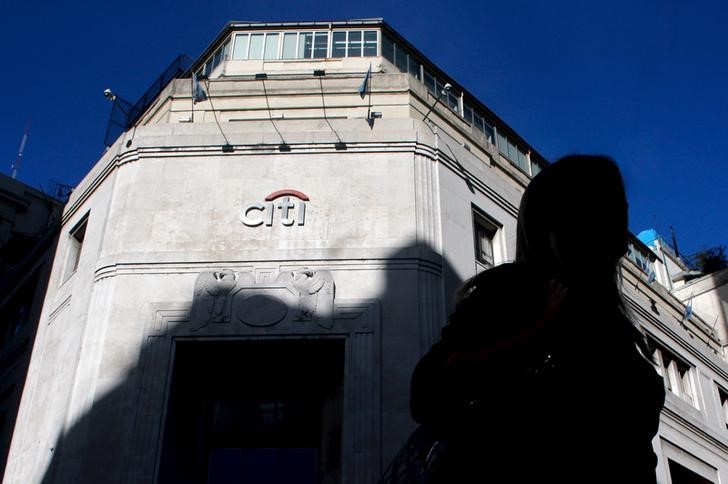Investing.com’s stocks of the week
BUENOS AIRES (Reuters) - An Argentine court on Monday ordered Citibank Argentina not to take any further steps toward quitting its role as custodian of some Argentine sovereign bonds while a row with U.S. creditors over unpaid debt rages on, the government said.
President Cristina Fernandez's government announced last month it was suing the local subsidiary of Citigroup Inc (N:C) for striking an illegal deal with a group of New York-based hedge funds fighting for full payment on defaulted debt.
Citigroup has portrayed itself as an innocent party sucked in the center of Argentina's bitter legal battle with the funds, forced to choose between processing interest payments in defiance of a U.S. court or not processing payments and putting its ability to do business in Argentina at risk.
The bank, the 12th biggest in Argentina based on deposits, denies violating that country's law.
In a statement, the Argentine economy ministry said the court ordered Citibank Argentina refrain from "taking decisions toward abandoning its custody of exchanged Argentine bonds."
The court's order raises the specter of further punitive measures against the bank should it continue seeking a way out of its local custodial business.
Argentina has already suspended the bank from capital market operations and stripped its chief executive officer of his authority.
The case stems from a lengthy legal feud between Fernandez's government and the funds led by billionaire Paul Singer's NML Capital over the payment terms offered in bond swaps that followed Argentina's record 2002 default.
U.S. District Judge Thomas Griesa awarded the funds full payment on their defaulted bonds and barred Argentina from servicing its restructured securities until it settled with the creditors.
After Griesa ruled on March 12 that there would be no exemption for local law bonds, Citibank Argentina announced it planned to quit its local custody business because of a threat from the government to strip it of its banking license if it obeyed Griesa's order.
It then reached a deal with the funds, which was approved by Griesa, not to appeal the U.S. judge's order if it was allowed to process two one-off transfers in March and June while it exited its custodian role.
